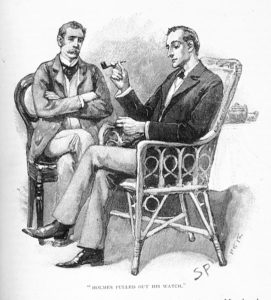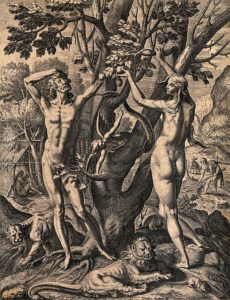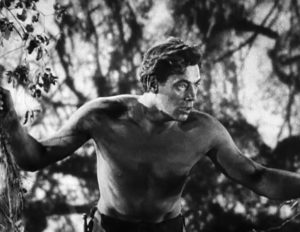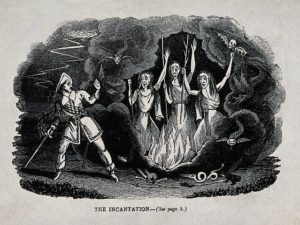- 4-minute read
- 23rd February 2020
Literary Misquotes: 5 Famous Lines Everyone Gets Wrong
Some quotes are so good they enter the popular consciousness. You don’t have to be a Shakespeare scholar to know ‘To be or not to be…’, for example, or a Brontë fanatic to recognise ‘Reader, I married him.’ But did you know that some of the best-known lines from literature are misquotes?
In this post, we look at five famous literary misquotes. So next time you hear someone use one of these lines, you can put your pedant hat on and let them know they’re getting it wrong!
1. Elementary, My Dear Watson!
Sherlock Holmes is still one the most well-known characters in literature. And if you ask for the master detective’s most famous line, most people would say, ‘Elementary, my dear Watson!’ in a heartbeat.
But this line never appeared in Arthur Conan Doyle’s short stories or novels. He does say ‘Elementary’ in at least one place. And ‘Exactly, my dear Watson’ in a few others. But never the full line!

The first time the line turned up was in P.G. Wodehouse’s Psmith, Journalist from 1915. And the first time Sherlock Holmes said it was in the 1929 film The Return of Sherlock Holmes. It has since been reproduced in hundreds of copies and parodies, making it one of the most famous misquotes in history.
2. Money Is the Root of All Evil
People use the phrase ‘money is the root of all evil’ as a criticism of greed. But since the line comes from the Bible – where a key source of evil is illicit fruit picking – it may seem odd to blame for the world’s ills on the monetary system. And that is because the Bible never says ‘money is the root of all evil’.
The real quote comes from 1 Timothy 6:10 and says, ‘the love of money is the root of all evil’. Admittedly, it still isn’t clear how that applies to Eve and the forbidden fruit, but it is at least a bit more nuanced.

3. Me Tarzan, You Jane
Like Sherlock Holmes, Tarzan is an iconic character associated with one key line: ‘Me Tarzan, you Jane’. But, like ‘Elementary, dear Watson’, this line does not appear in any of Edgar Rice Burroughs’s original Tarzan stories. Nor does it even appear in the original series of Tarzan films!

Instead, this line comes from an interview with Johnny Weissmuller, who played Tarzan between 1932 and 1948. He is quoted as saying:
Find this useful?
Subscribe to our newsletter and get writing tips from our editors straight to your inbox.
I didn’t have to act in Tarzan, the Ape Man – [I] just said, ‘Me Tarzan, you Jane.’
There is a scene in the film where Tarzan learns to say ‘me’, ‘you’ and ‘Jane’, which is close to the misquote. But he never actually says the full line that he and the character are now most famous for saying.
4. Bubble, Bubble Toil and Trouble
Act 4 of Shakespeare’s Macbeth begins with three witches reciting a spell with the famous refrain ‘Double, double toil and trouble/Fire burn, and cauldron bubble.’ However, this is often misquoted as either ‘hubble, bubble toil and trouble’ or ‘bubble, bubble toil and trouble’.

Not the worst of misquotes, but it is an odd one given that ‘bubble’ appears in the next line anyway. And to make it even odder, the line ‘bubble, bubble toil and trouble’ may have been popularised by ‘Much Ado About Scrooge’, a 1987 episode of the Disney cartoon DuckTales featuring Scrooge McDuck.
5. Hell Hath No Fury Like a Woman Scorned
Finally, we all know that ‘hell hath no fury like a woman scorned’.
Or, at least, we’ve all probably heard this line aimed at a woman expressing displeasure over something. But did you know that this line is from a play called The Mourning Bride by William Congreve? And that ‘hell hath no fury’ isn’t even the correct line? The original version was:
Heav’n has no Rage, like Love to Hatred turn’d/Nor Hell a Fury, like a Woman scorn’d
We assume the ‘hath’ was added later to make the quote sound more Biblical!